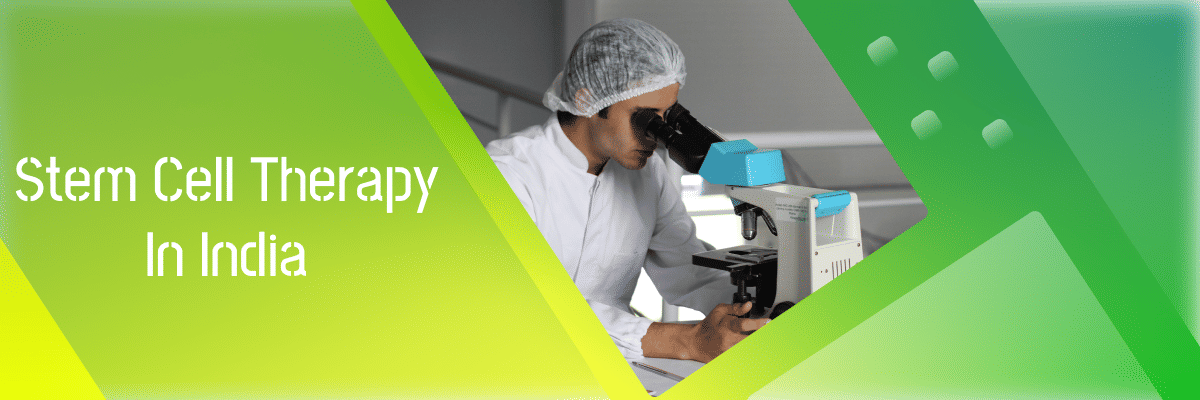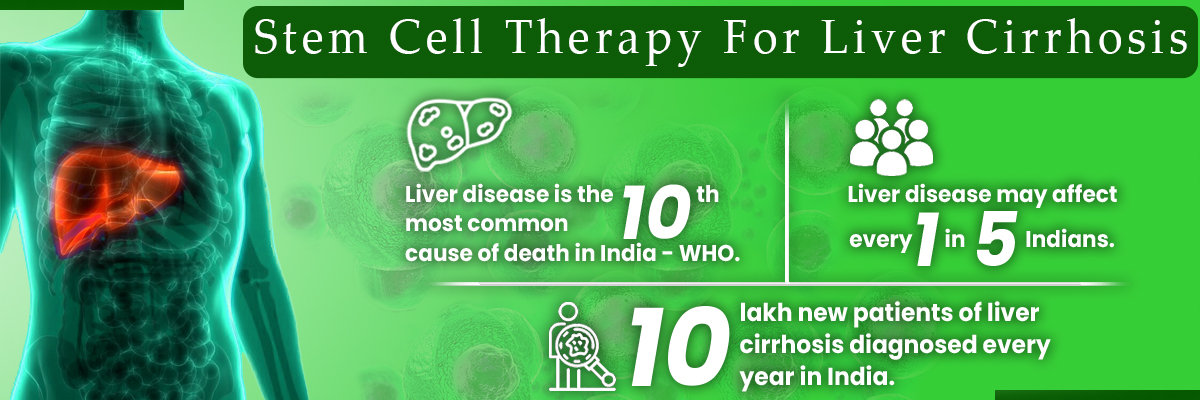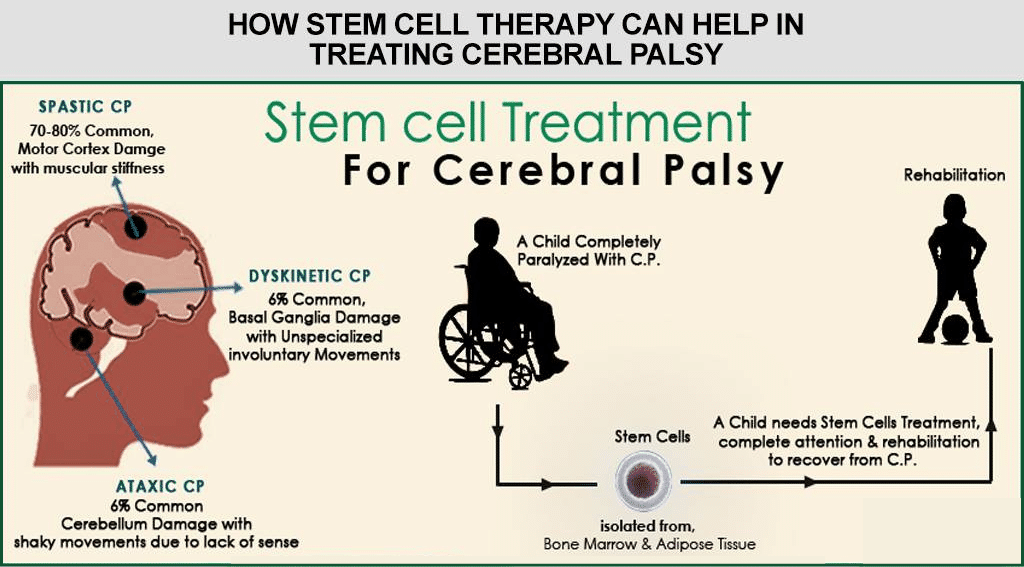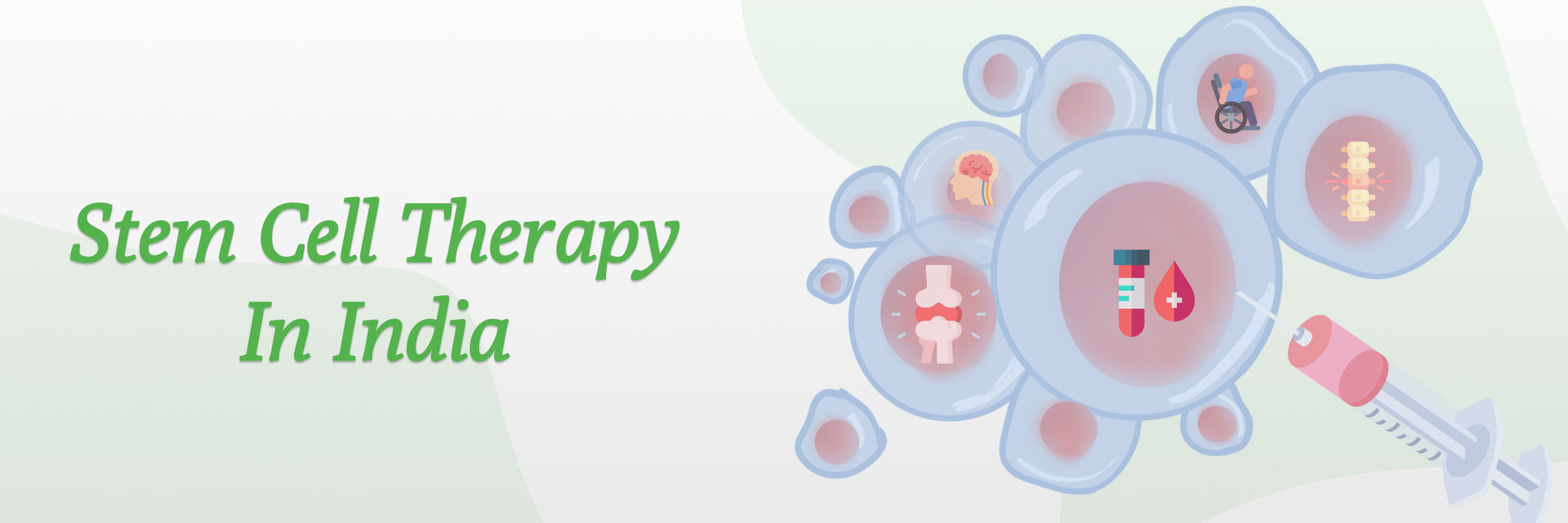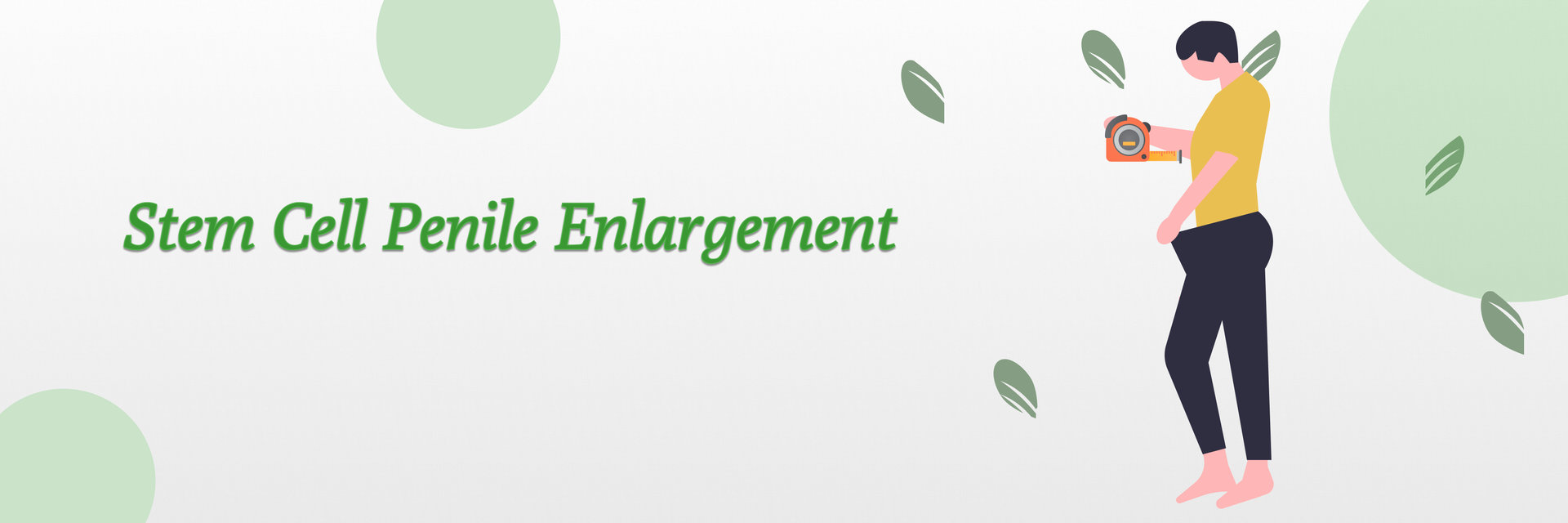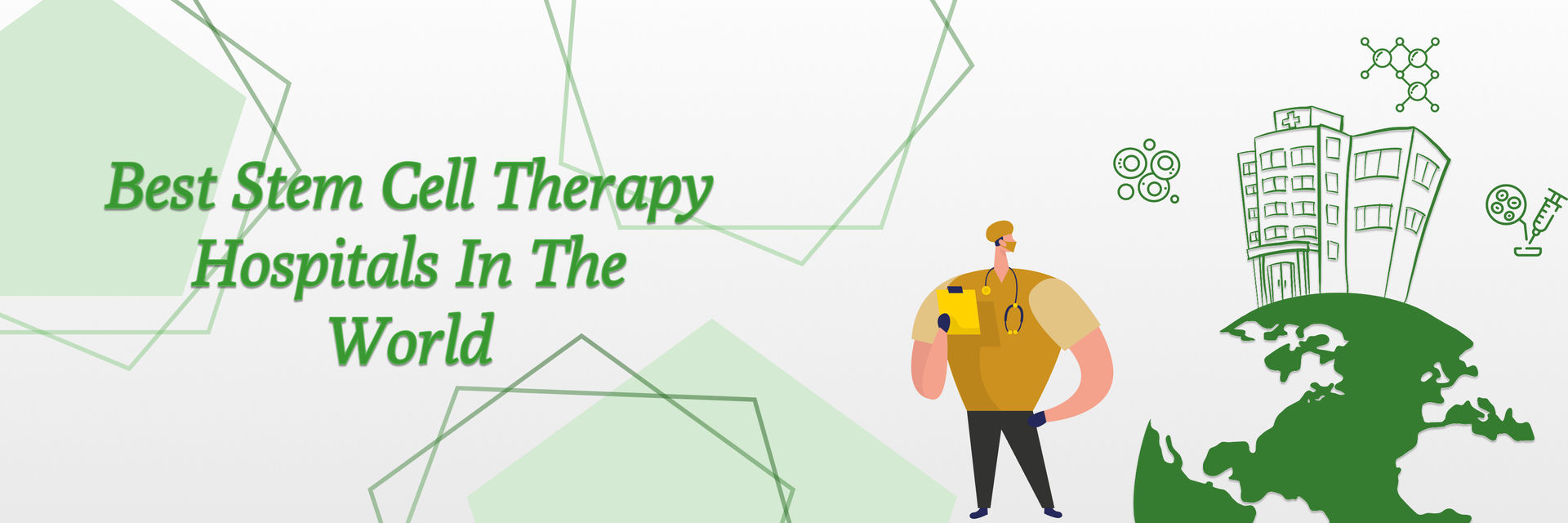According to the WHO, chronic diseases are on the rise globally. It contributes significantly to the burden of illness and healthcare costs. Mesenchymal stem cell therapy can address various conditions with its multipotent nature and immunomodulatory properties. The successful approval of MSC therapies in Europe has made regenerative medicine a prominent treatment. Also, the effectiveness of MSC therapy in bone and heart disorders has been broadly established. The number of MSC clinical trials has increased rapidly during the post-COVID era. It amounts to a total of 1094 trials worldwide. Published results state that MSC therapy is a safe and effective therapeutic approach.
Through this blog, let’s look at the potential of mesenchymal stem cell therapy to transform the landscape of regenerative medicine.
Mesenchymal stem cell (MSC) therapy is a type of regenerative medicine. It involves using mesenchymal stem cells to promote tissue repair and regeneration. Mesenchymal stem cells are a type of adult stem cell that can differentiate into various cell types, like bone cells, cartilage cells, and fat cells.
Let’s look at some key points about mesenchymal stem cell therapy:
- Source of Mesenchymal Stem Cells: These cells can be obtained from various tissues in the body, including bone marrow, adipose tissue, umbilical cord blood, and other connective tissues.
- Multipotent Nature: Mesenchymal stem cells are multipotent. They can differentiate into different cell types. This makes them valuable for regenerative medicine applications. MSC can differentiate into various cell types, aiding tissue repair and regeneration. Studies show that MSCs contribute 30% of the bone marrow, contributing to their regenerative properties.
- Immunomodulatory Properties: Mesenchymal stem cells can modulate the immune response. It makes them helpful in treating conditions where the immune system is overactive or malfunctioning.
- Tissue Repair and Regeneration: The regenerative potential of these cells to repair damaged tissues is important. It has implications for treating various conditions like orthopaedic injuries, cardiovascular diseases, autoimmune disorders, and neurodegenerative diseases.
- Administration: Administration can be done through different routes. These include intravenous, intra-articular, or localised injections at the injury site.
- Research and Clinical Applications: Clinical trials are ongoing to investigate its effectiveness and safety for various medical conditions.
How Are Mesenchymal Stem Cells Harvested?
Mesenchymal stem cells are a type of adult stem cell that can differentiate into various cell types, such as bone cells, cartilage cells, and fat cells. They are available in multiple tissues, including bone marrow, adipose tissue, and umbilical cord tissue. The harvesting of MSCs depends on the tissue source. Let’s look at some standard methods for harvesting MSCs from different tissues:
- Bone Marrow:
Aspiration: The most common method for harvesting MSCs from bone marrow involves aspiration. A needle is inserted into the bone, typically the hipbone or iliac crest and a liquid containing MSCs is withdrawn.
- Adipose Tissue:
Liposuction: MSCs can be obtained from adipose tissue through liposuction. The extracted fat is then processed to isolate MSCs.
- Umbilical Cord Tissue:
Postnatal Tissue Donation: MSCs can be harvested from the umbilical cord after a baby is born. The tissue is processed to extract MSCs.
MSCs can also be found in other tissues like the placenta, dental pulp and synovial membrane or lining of joints. The harvesting methods generally involve tissue processing, cell isolation, and culture techniques to obtain sufficient viable MSCs.
Explore how mesenchymal stem cells are harvested. Your health is too important to ignore – schedule your appointment now.
Let’s see how MSC seamlessly shift roles to repair, regulate, and rejuvenate to transform into potential treatment modalities.
What Makes Mesenchymal Stem Cells Unique in Regenerative Medicine?
Let’s look at what makes MSCs unique in the field of regenerative medicines:
- Multipotency: MSCs are multipotent. It can differentiate into various cell types. They can give rise to bone cells, cartilage cells and fat cells. This multipotency contributes to the repair and regeneration of different tissue types.
- Immunomodulatory Properties: MSCs can interact with immune cells and release factors that suppress inflammatory responses. This property helps treat conditions characterised by excessive inflammation. For example- Autoimmune diseases.
- Anti-inflammatory Effects: MSCs can secrete anti-inflammatory molecules, which reduce inflammation in the surrounding tissue.
- Paracrine Signalling: MSCs also exert therapeutic effects through paracrine signalling. They release bioactive molecules, like growth factors, cytokines and extracellular vesicles. This stimulates tissue repair.
- Low Immunogenicity: MSCs are less likely to trigger an immune response when transplanted into a recipient. This makes them suitable for allogeneic transplantation.
- Ease of Isolation: MSCs can be relatively quickly isolated from various tissues. This facilitates their use in clinical applications.
- Ethical Considerations: MSCs are typically obtained from adult tissues, unlike embryonic stem cells. This eliminates the ethical concerns.
Let’s see how mesenchymal stem cell therapy holds promise across a spectrum of diseases, from orthopaedic woes to immune disorders.
What Conditions Can Be Treated with Mesenchymal Stem Cell Therapy?
Here are some conditions that have been explored for potential treatment with MSC therapy:
- Orthopaedic Injuries: MSC can promote the repair of damaged bone, cartilage, and tendon tissues. Beneficial for osteoarthritis, rheumatoid arthritis, and sports-related injuries.
- Cardiovascular Diseases: It can improve cardiac function and promote vascular regeneration. Conditions like myocardial infarction and heart failure are being explored.
- Autoimmune Disorders: The immunomodulatory properties are helpful for autoimmune diseases like rheumatoid arthritis, multiple sclerosis, and systemic lupus erythematosus.
- Neurological Disorders: MSCs are being studied for their potential to promote neural repair. Useful for stroke, spinal cord injury, Parkinson's and Alzheimer's.
- Inflammatory Bowel Disease: Beneficial to treat Crohn's disease and ulcerative colitis.
- Diabetes: They may promote the regeneration of pancreatic beta cells and modulate the immune response in type 1 diabetes.
- Respiratory Disorders: MSCs are being investigated for conditions such as chronic obstructive pulmonary disease and acute respiratory distress syndrome.
- Graft-versus-Host Disease: MSC therapy treats GVHD, a complication that occurs after bone marrow or stem cell transplantation. Studies showed that MSC-based formulation significantly improved the overall response at a 69% rate at day 28.
- Wound Healing: MSCs promote healing and tissue regeneration, particularly in chronic or non-healing wounds.
Learn about conditions treatable with mesenchymal stem cell therapy. Take charge of your health and your life – contact us today!
How is Mesenchymal Stem Cell Therapy Administered?
Here are some common methods of administering MSC therapy:
Intravenous (IV) Injection: This is the most common method. MSCs are infused directly into the bloodstream through a vein. This allows the cells to travel throughout the body, helping to reach various tissues and organs.
- Intra-articular Injection: In cases of joint disorders or injuries, like osteoarthritis, MSCs are injected directly into the affected joint.
- Intramuscular Injection: MSCs may be injected directly into muscle tissue for some conditions. It is used for musculoskeletal or muscular disorders.
- Subcutaneous Injection: This involves delivering MSCs just beneath the skin. This method is less common but used in specific situations.
- Intrathecal Injection: MSCs are administered directly into the cerebrospinal fluid in certain neurological conditions. It targets the central nervous system.
- Intraperitoneal Injection: An intraperitoneal injection delivers MSCs into the peritoneal cavity. It is used for abdominal organs or its conditions.
- Topical Application: It is applied as a cream or gel for skin-related conditions or wound healing.
- Combination Therapies: MSC therapy may be combined with other treatments or surgical procedures depending on the specific medical situation. Like in conjunction with surgery for certain orthopaedic conditions.
The choice of administration method depends on the medical condition and desired therapeutic effect. And the current understanding of MSC behaviour in the body.
What Are the Potential Risks of Mesenchymal Stem Cell Therapy?
Here are some considerations regarding potential side effects:
Infusion Reactions: These include fever, chills, and nausea. But they are usually mild and transient.
Contamination: Risk during the preparation and handling of MSCs.
Infection Risk: Stringent quality control measures and adhering to good manufacturing practices are crucial for prevention.
Tumour Formation: Concerns have been raised about their potential to promote tumour growth under certain conditions
Immunosuppression: Concerns about unintended immunosuppression can arise.
Organ-Specific Concerns: Depending on the route of administration, there may be concerns. For example, when injected into joints, there could be considerations for local effects on cartilage or surrounding structures.
Ethical Considerations: It has shifted toward using adult-derived MSCs, such as those from bone marrow or adipose tissue.
Unknown Long-Term Effects: The long-term safety of MSC therapy is still being investigated.
Explore potential risks of Mesenchymal Stem Cell Therapy. Take the first step to recovery – get in touch with us for your treatment.
How Does Mesenchymal Stem Cell Therapy Compare to Other Regenerative Treatments?
Here's a comparison of MSC therapy with other common regenerative treatments:
| MSC therapy | Other therapies |
| Involves the administration of mesenchymal stem cells, which have the potential to differentiate into various cell types and exert immunomodulatory effects. | Platelet rich therapy: Utilises your concentrated platelets. These contain growth factors to promote healing and tissue regeneration. Used for musculoskeletal conditions such as tendon injuries and osteoarthritis |
| Mesenchymal stem cells can differentiate into cells like bone, cartilage, and fat | Other Stem Cell Therapies: Involve different types of stem cells, such as hematopoietic stem cells or embryonic stem cells, with distinct differentiation capabilities |
| Uses cells that can be engineered to express or produce specific proteins or factors, potentially enhancing their therapeutic effects. | Gene therapy: Involves introducing genetic material into cells to correct or modify gene function. It can be used to treat genetic disorders or enhance tissue regeneration. |
| It can be used for cartilage regeneration in conditions like osteoarthritis. | Autologous Chondrocyte Implantation (ACI): Involves harvesting a patient's cartilage cells, expanding them in vitro, and implanting them back into the damaged joint to repair cartilage defects. |
| Mesenchymal stem cells release extracellular vesicles, including exosomes. Exosomes contain bioactive molecules that may contribute to the therapeutic effects. | Exosome Therapy: Focuses specifically on the administration of exosomes. They carry proteins, nucleic acids, and other signalling molecules. Exosomes may have regenerative properties. |
| Modulates the immune response through the secretion of anti-inflammatory cytokines. | Cytokine Therapy: Involves the administration of specific cytokines to regulate immune responses and promote healing. |
| Targets tissue repair through the administration of stem cells with regenerative potential. | Hyperbaric Oxygen Therapy (HBOT): Involves breathing pure oxygen in a pressurised room or chamber to enhance oxygen delivery to tissues, promoting healing and reducing inflammation. |
Let’s look at how mesenchymal stem cell therapy boasts a promising success rate with maximum healing and minimum side effects in regenerative medicine.
What is the Success Rate of Mesenchymal Stem Cell Therapy?
Uncover the success rate of Mesenchymal Stem Cell Therapy. Your well-being is our priority - call us to book your appointment today.
Here are some general considerations regarding the success rate of MSC therapy:
- Clinical Applications: MSC therapy has shown promising results in preclinical studies and early-phase clinical trials for many conditions. Like musculoskeletal disorders, autoimmune diseases, neurological disorders and cardiovascular diseases.
- Musculoskeletal Conditions: In osteoarthritis and joint injuries, there is success in reducing pain, improving function, and promoting tissue repair. Studies have shown that overall, people treated with any stem cells experienced a significant decrease in knee pain starting at three months of treatment, thus making it worthwhile to treat knee osteoarthritis.
- Autoimmune and Inflammatory Diseases: Effective for conditions characterised by immune dysfunction. Like GvHD and certain autoimmune disorders. Positive results are reported.
- Neurological Disorders: Research is ongoing for stroke and neurodegenerative diseases. Results from early studies are encouraging.
- Cardiovascular Diseases: Used for cardiac repair and regeneration in conditions like myocardial infarction.
- Clinical Trials and Research: Many ongoing clinical trials evaluate the safety and efficacy of MSC therapy for various conditions.
- Regulatory Approval and Standardisation: The success is influenced by regulatory approvals, standardisation of protocols and adherence to ethical and safety guidelines.
References:
https://www.nature.com/articles/s41392-022-01134-4
https://stemcellres.biomedcentral.com/articles/10.1186/s13287-022-03054-0
https://link.springer.com/article/10.1007/s12015-022-10369-1
